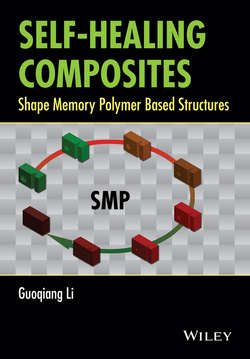Описание книги
In this book, the self-healing of composite structures with shape memory polymer as either matrix or embedded suture is systematically discussed. Self-healing has been well known in biological systems for many years: a typical example is the self-healing of human skin. Whilst a minor wound can be self-closed by blood clotting, a deep and wide cut needs external help by suturing. Inspired by this observation, this book proposes a two-step close-then-heal (CTH) scheme for healing wide-opened cracks in composite structures–by constrained shape recovery first, followed by molecular healing. It is demonstrated that the CTH scheme can heal wide-opened structural cracks repeatedly, efficiently, timely, and molecularly. It is believed that self-healing represents the next-generation technology and will become an engineering reality in the near future. The book consists of both fundamental background and practical skills for implementing the CTH scheme, with additional focus on understanding strain memory versus stress memory and healing efficiency evaluation under various fracture modes. Potential applications to civil engineering structures, including sealant for bridge decks and concrete pavements, and rutting resistant asphalt pavements, are also explored. This book will help readers to understand this emerging field, and to establish a framework for new innovation in this direction. Key features: explores potential applications of shape memory polymers in civil engineering structures, which is believed to be unique within the literature balanced testing and mathematical modeling, useful for both academic researchers and practitioners the self-healing scheme is based on physical change of polymers and is written in an easy to understand style for engineering professionals without a strong background in chemistry
